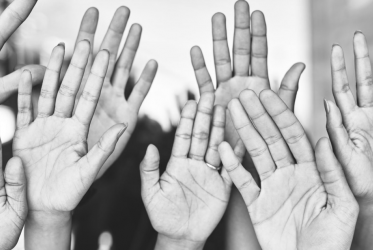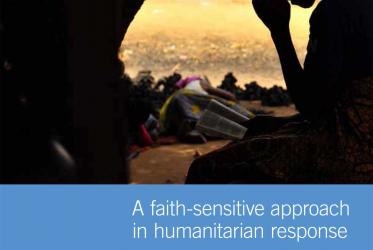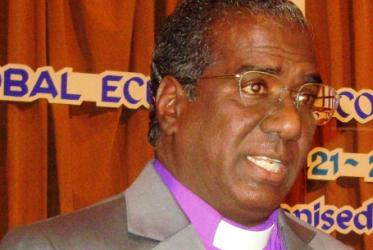Displaying 1 - 20 of 20
#WCC70: Churches as “freedom agents”
12 February 2018
Not just numbers, displaced people need to share their stories
01 February 2018
Ecumenical diakonia: sharing God’s gifts at all tables
05 October 2017
UN Climate summit results vital for world’s future
26 November 2015
European churches and ecumenical organizations respond to refugee crisis
16 September 2015
Cold War politics and the world’s churches
04 September 2013
Christian leaders from Odisha visit WCC offices
16 March 2012
Before Durban climate talks, Brazilian ecumenists think about Rio+20
23 November 2011
Accompanying Dalits in their journey to liberation
09 April 2009











